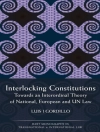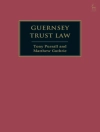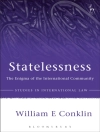Central to this book is the concept of humanity in international law. It traces the evolution of that concept within international law, studies the existing theories of crimes against humanity, and lays out its own theory based on an inclusive view of “humanity”. Crimes against humanity are core crimes under international law; their modern definition is found in the Rome Statute. However, their protective scope remains unclear, with the exact meaning of “humanity” left undefined in law.
The proposed theory argues that “humanity” should be understood as “humanness” and crimes against humanity should be criminalised because humanness constitutes these crimes’ valid protected interest. This volume in the International Criminal Justice Series offers an analysis of the German doctrine of
Rechtsgut to justify the penalization of crimes against humanity at both domestic and international levels.
This is the first monograph on crimes against humanity written by an author from the Commonwealth of Independent States (CIS) aimed at an international audience, and should constitute a useful tool for academics, students and practitioners of international law.
Rustam Atadjanov , LLB, LLM, Dr.jur., attained his Ph.D. at the University of Hamburg in Germany and is a former Legal Adviser to the Regional Delegation of the International Committee of the Red Cross in Central Asia, Tashkent, Uzbekistan.
Tabella dei contenuti
Introduction.- Main Substantive Terms, Their Basic Differences and Links, and Leading Working Hypothesis.- Historical Overview of the Development of the Concept of Humanityin International Law and Crimes against Humanity.- “Humanity” within the Contemporary Context of International Law Dealing with Crimes against Humanity.-“Humanity” as a Valid Protected Interest under the Rechtsgutstheorie.- The Protected Legal Interests of Crimes against Humanity and Other Core Crimes under International Law: A Comparative Analysis.- Conclusion.












